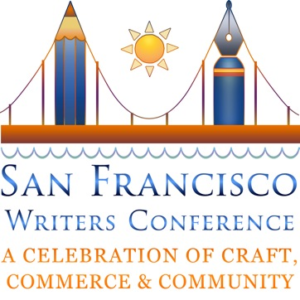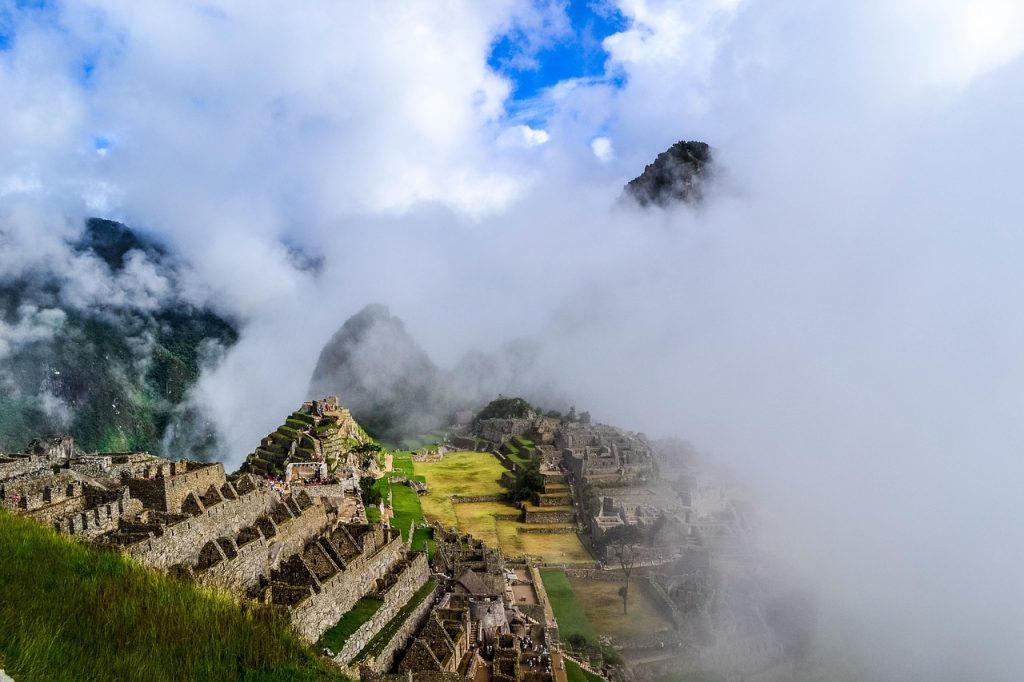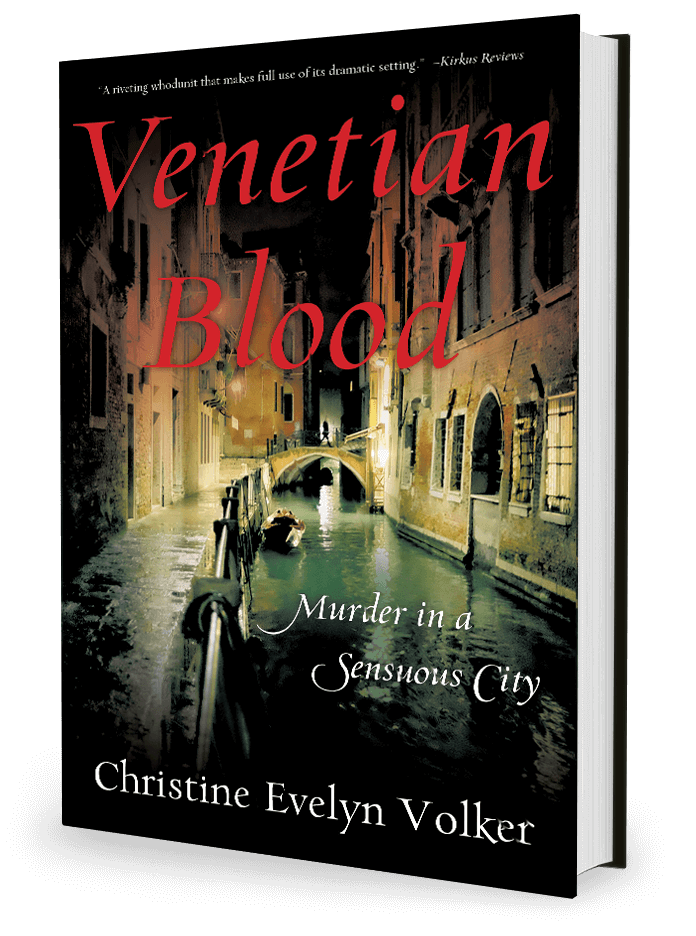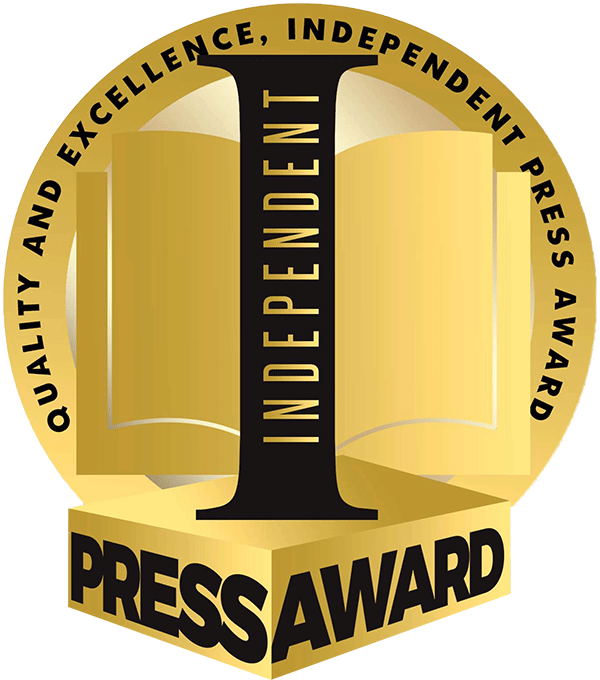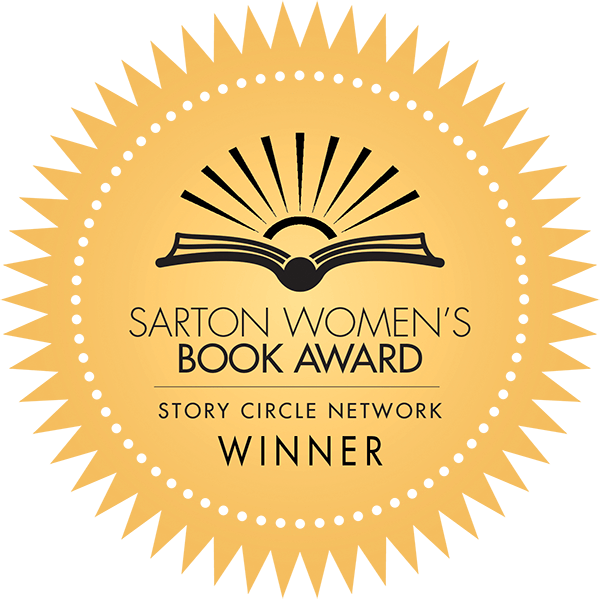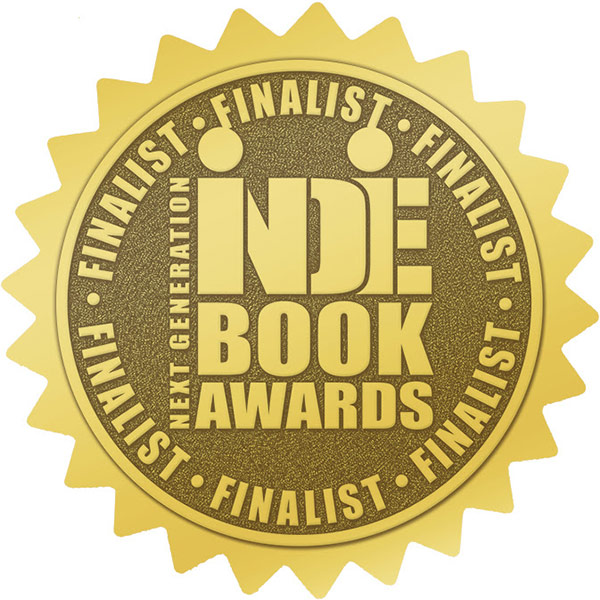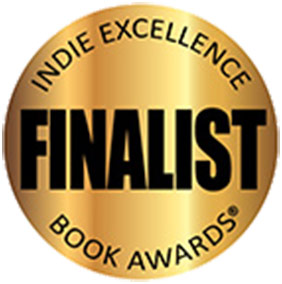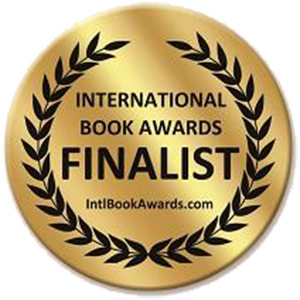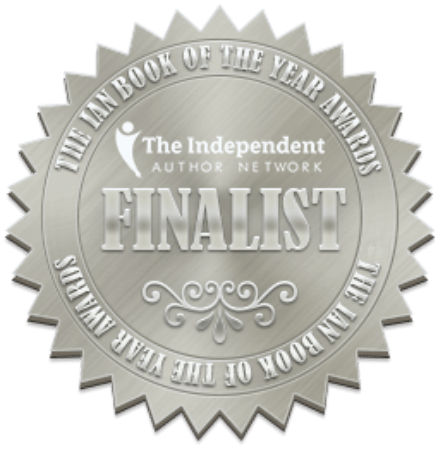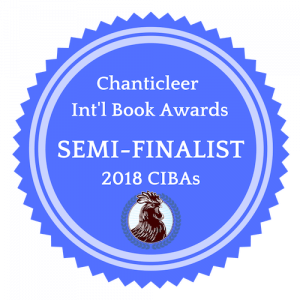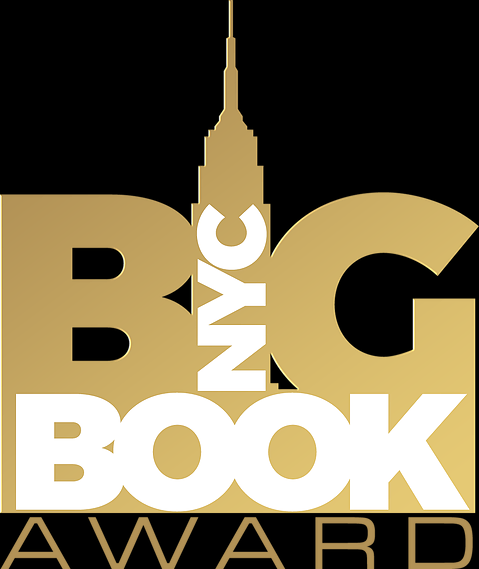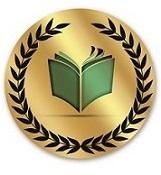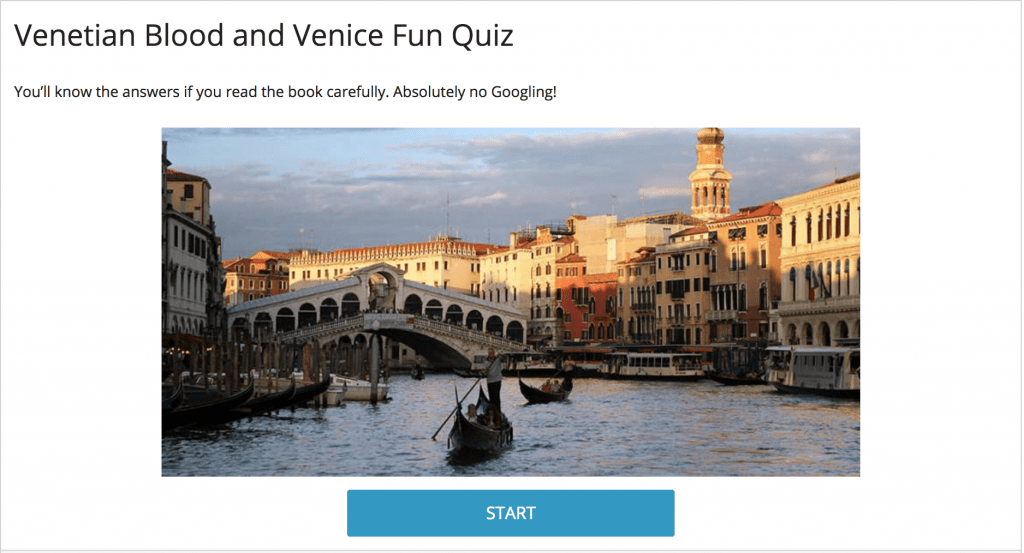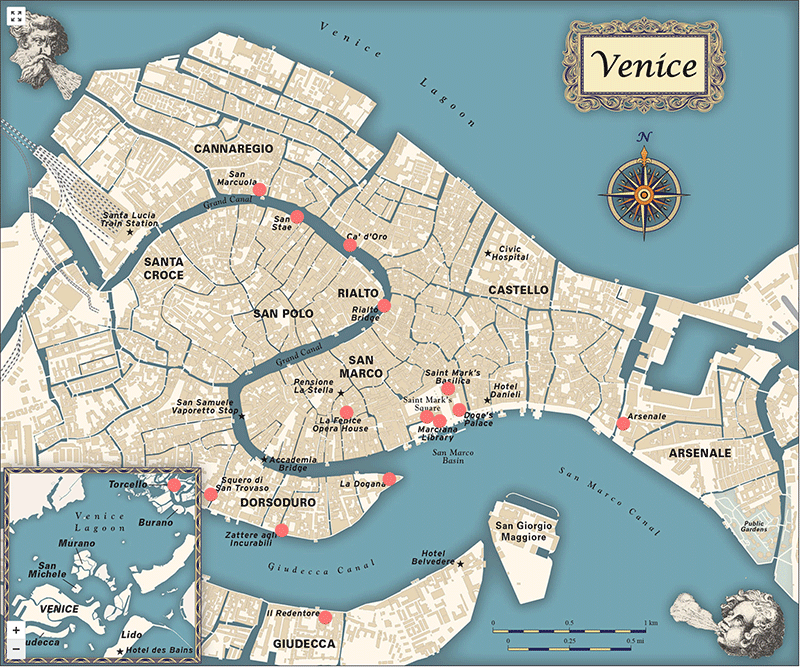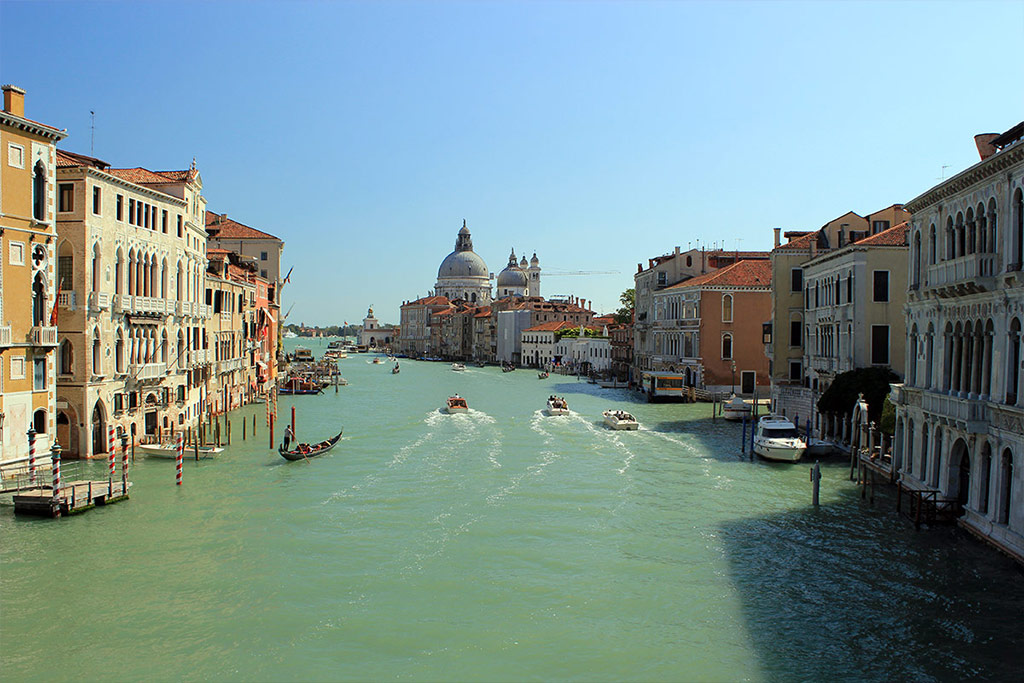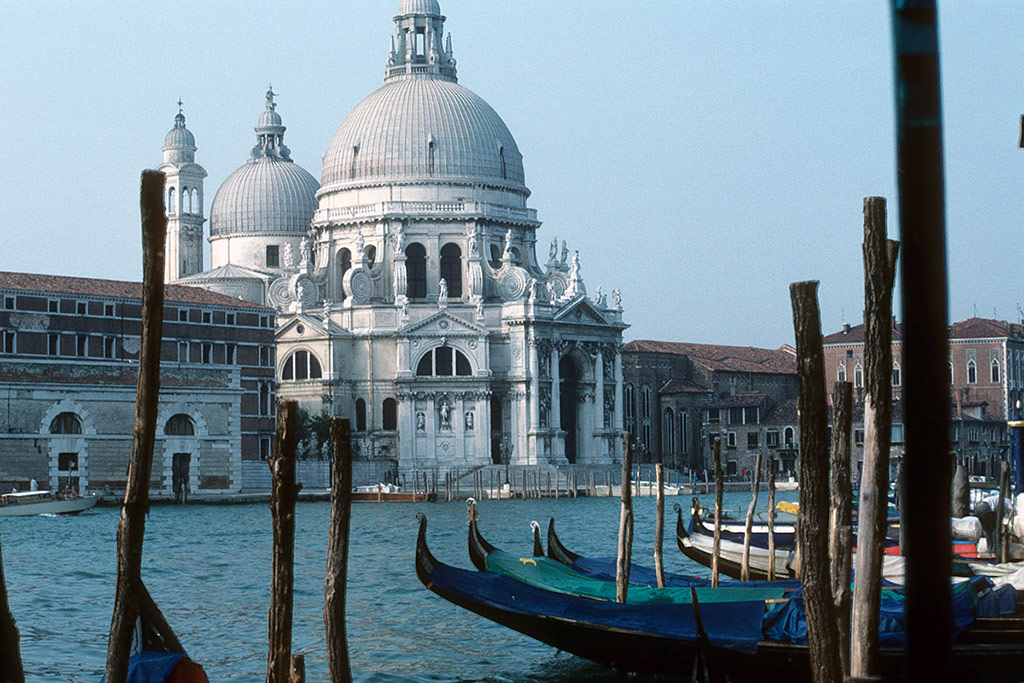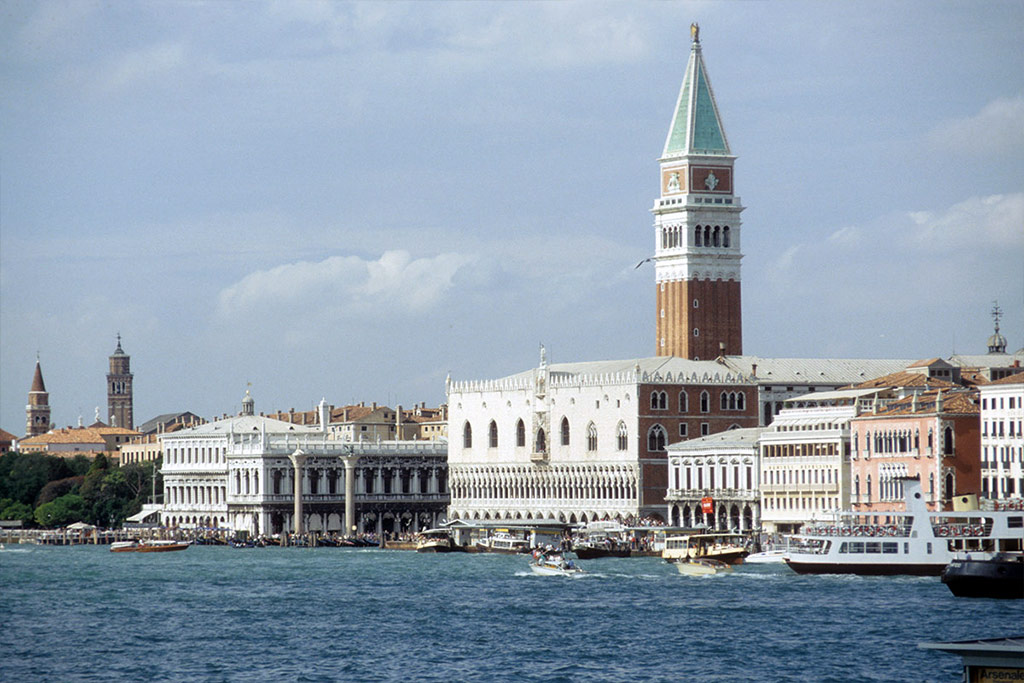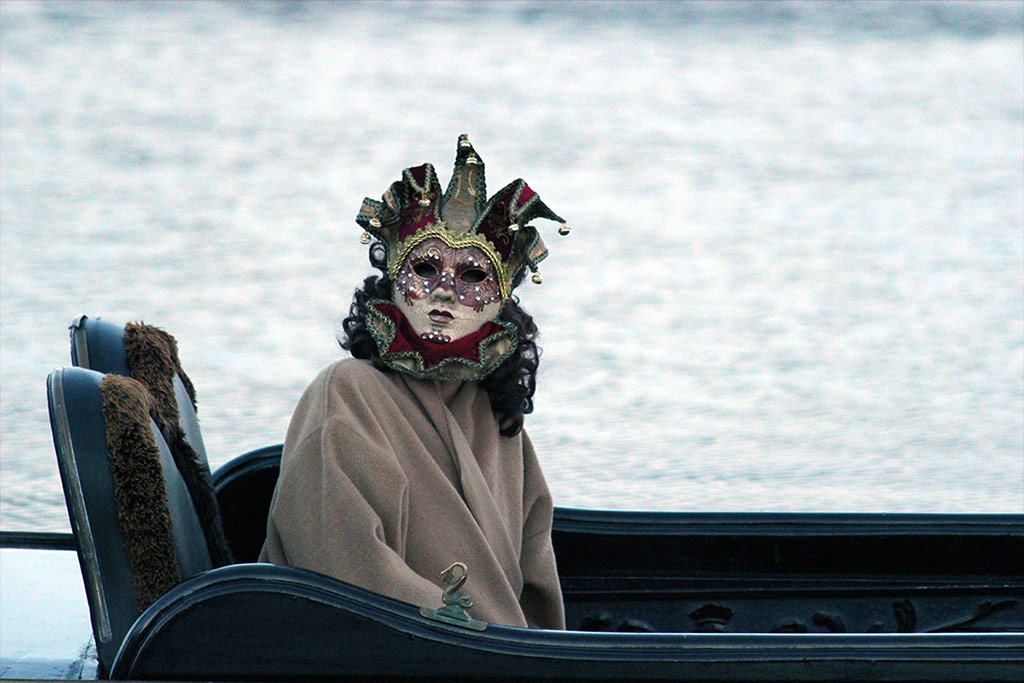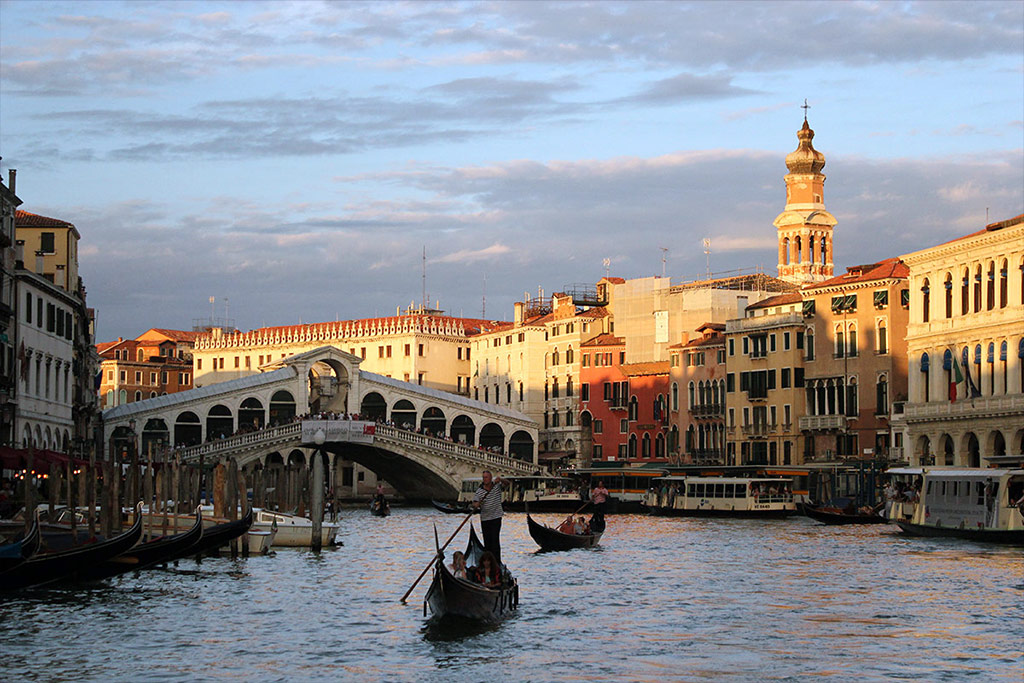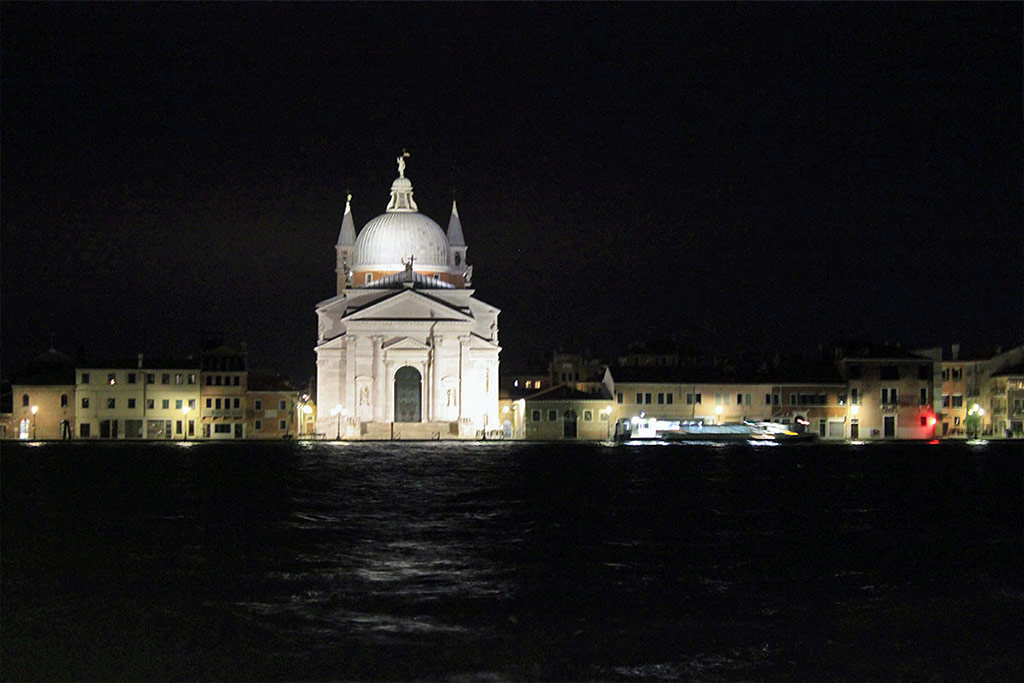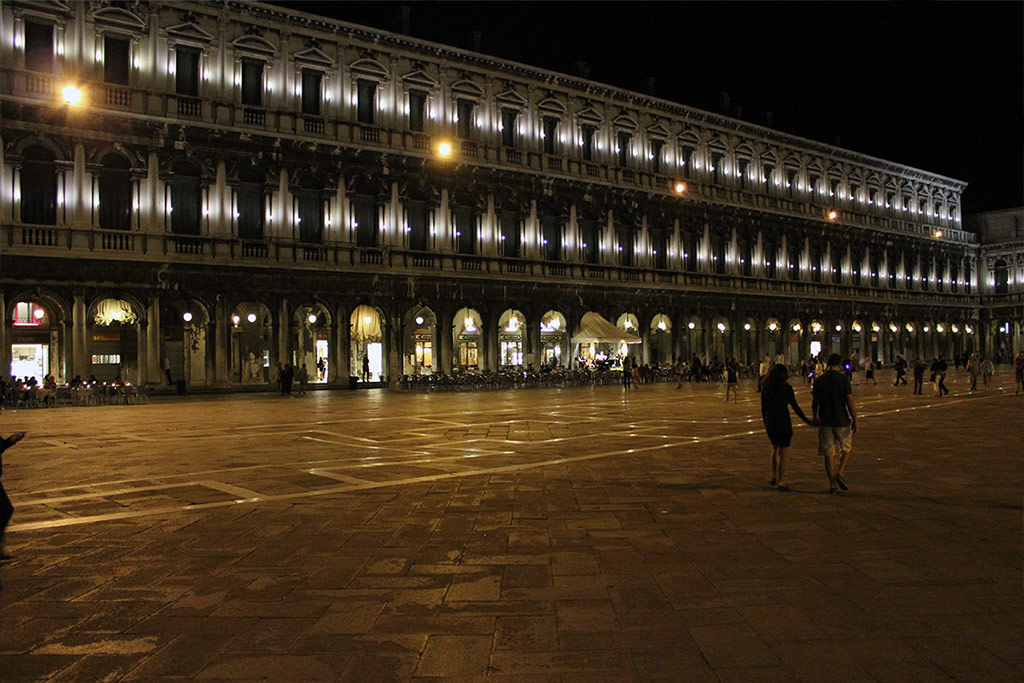A captivating tapestry of murder, betrayal and family, Venetian Blood is the story of one woman’s brave quest for the truth—before it’s too late.
It’s 1992 when Anna Lucia Lottol visits Venice to see an old friend and escape her failing, childless marriage. Instead of finding serenity, however, Anna encounters a frightening world where she becomes a ruthless detective’s murder suspect. Dragged into the police station, she lies about being in Venice the night before. Terrified of foreign justice, she lies, too, about knowing the dead man—a money launderer from Venice who had made threats after he’d seduced her at financial conference in Milan. Anna, talented in mathematics and physics, working in anti-money laundering for the US Treasury Department, struggles to make sense of an irrational city filled with illusions. With murders of long ago spiraling into the present-day and police working overtime to uncover her lies, how can Anna find a way to clear her name, identify the killer and keep her job? She teams up with her old friend, and together they attempt to pry clues from uncooperative characters—some even denying what Anna has seen or heard. Bewildered, she can’t tell if they are hiding something or if she is losing touch with reality. As she resists the charms of an Italian banker, she must ask herself, “Who is friend, who is foe?” Anna—nearly killed by an unseen attacker, beset by haunting dreams, racing to unlock secrets—unleashes a force bent on destroying her. As the mystery turns personal, will Anna save herself? Will she vanquish both her enemies and her darkest fears?
Capturing the delicate beauty of Venice, the novel is a dark love poem to the city whose sinuous canals it traces. Suspenseful and evocative, this multi-layered work is an intimate portrayal of a woman’s perilous voyage of self-discovery. The reader is plunged into Venice’s tangled web of alleys and canals, but soon realizes that the connections do not stop at the shores of the Adriatic. The fates of creatures far away, the tales of people without a voice, reverberate through the pages.
Awards
2019 Independent Press Award Winner
Mystery and First Time Published Fiction
Pinnacle Book Achievement Award
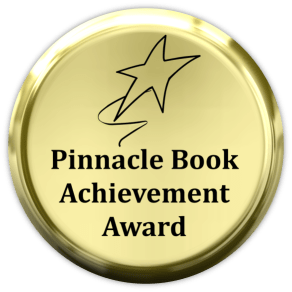
2017 Sarton Women’s Book Award Winner
Contemporary Fiction
Next Generation Indie Book Awards Finalist
First Novel >80,000 Words
National Indie Excellence Awards Finalist
New Fiction
2018 Int’l Book Awards Finalist
Best New Fiction and Mystery/Suspense
“A riveting whodunit that makes full use of its dramatic setting.”
–Kirkus Reviews (read the full review)
“With lush language, Volker transports us to Venice, Italy, and the murder of Count Sergio Corrin. From the opening pages, we are swept up by language, intrigue, and a tantalizing mystery. Volker reaffirms the abiding adage: describe a world well enough and the reader is fully contained in it.”
–NINA SCHUYLER
AUTHOR OF THE AWARD-WINNING BOOK THE TRANSLATOR
“… beautifully, if not deliciously, described story.”
–San Francisco Book Review (read the full review)
“Weaves alluring language, seductive setting, the charm of shadowed history, and cunning intrigue into a (modern) historical mystery so tantalizing you will be swept away from word one.”
–Manhattan Book Review (read the full review)
“Narrator Gabrielle de Cuir is a virtuoso whose sultry voice is the perfect vehicle for Volker’s mystery. It’s the sensuous story of a pleasure trip that quickly devolves into a nightmare…”
–AudioFile Magazine (read the full review)
Top Lists
- BuzzFeed: Top 5 Last-Minute Summer Must-Reads
- Working Mother: 17 End-of-Summer Books to Read While You Still Can
- Culturalist: August Must Reads
- Bookstr: Suspense Novels to Devour This Summer
- Brit + Co: 5 Suspense Novels to Read As Summer Turns into Fall
Christine Writing about Mysteries
- The Basic Art of Italian Cooking – Maria Liberati: A Venetian Mystery Tour in Meals
- Bookish: A Tale of Four Cities — Must-Read International Thrillers
- The Strand Magazine: A Deadly Seduction — Venice in Four Acts
Author Interviews
- Seductive Venice: Venice, My Muse — An Interview with Christine Volker
- Story Circle: Author Interview
Featured Reviews
Seductive Venice / Whose Venetian Blood?
Murder is a good excuse…to read about Venice! The neighborhood around the Guggenheim and the Dogana, crossing the Accademia Bridge, Bacino Orseolo, the Church of Santa Fosca, the Marciana, lunch on Torcello, a cabana on the Lido, the Scuola dei Morti, even the train station, all are sauntered through with compelling detail in Christine Evelyn Volker’s book Venetian Blood: Murder in a Sensuous City. I don’t know if I could pick out which neighborhood is Volker’s favorite because she seems to know so many of them so well, and that made me want to visit them all! Read more…
Working Mommy Journal / Venetian Blood Book Review
A captivating tapestry of murder, betrayal, and family, Venetian Blood is the story of one woman’s brave quest for the truth—before it’s too late. Read more…
The Venice Experience / New Murder Mystery set in Venice for your reading list!
Ciao tutti! Often I am asked to either give an assist to authors in their research of Venice for their novel or to review a new book that has something to do with Venice. What luck! Just when I was in need of a little dose of Venice, the perfect “fix” arrived- a copy of Venetian Blood: Murder in a Sensuous City by Christine Evelyn Volker to read and review. Read more…
Monica Cesarato / Book Giveaway
Every so often I get so lucky to get asked by writers from all over the world to read their books set in Venice and to give my opinion. For me there is nothing nicer than receiving a book with dedication just for me….makes me feel so special! This week it was the turn of Venetian Blood: Murder in a Sensuous City by the great Christine Evelyn Volker. Read more…
Essentially Italian / Review, Author Interview, & Giveaway!
Well written with rich descriptions, historical details and lyrical language, Christine Volker’s debut mystery novel set in Venice is a worthy read. Read more…
Book Passage
In case you missed Christine Volker last week, you do NOT want to miss her book “Venetian Blood” (we have signed copies). It’s an entirely engaging mystery about American Anna Lucia (a money laundering specialist at the Treasury Department ) who is in Venice on a mid-life crisis holiday — a holiday that turns into a gripping nightmare. This is an excellent first novel that captures the glory and history and rich palazzo decor of Venetian life while weaving a torrid modern day tale. The blockbuster ending is a jolt. It just makes me want to go to Venice again. Right away.
5-Star Review from Chanticleer Book Reviews
Get ready to journey into the allure of romance and mystery that awaits among the canals of Venice. Read more…
You can buy Venetian Blood online in these countries:
Frequently Asked Questions
What motivated you to write the book?
I was going through a lot of tumult and pain. At bottom, I felt that if I could not create life one way, I’d do it in another, bringing to life a place I had experienced and loved. However, I didn’t realize that writing is far from a pain-free endeavor—particularly when you are new to the craft.
Venetian Blood came from my visceral reaction to Venice and its beauty. I see it as a place of miracles. It was born and has existed against all the odds. I mean, who would build a city on mosquito-infested salt marshes, in the middle of nowhere, and decorate it with treasures of art and architecture? Floods, tides, diseases were all threats and it had no natural advantages save one: the difficulty for land-based barbarians to invade islands protected by the sea. The city achieved its glories through the genius and hard work of its own people—along with some cunning. Unlike other regions in olden times, ruled by a king or a despotic family, Venice constructed a broader system of government, a republic, which lasted one thousand years. Rising sea levels and unlimited hordes of tourists are inundating the modern city. Yet Venice persists. It’s shrouded in mystery. The murmur of water lapping against ancient stone, the flicker from streetlamps transforming palazzos into pale ghosts, the echo of footfalls down narrow alleyways, the whisper of a gondola heading to a rendezvous in the dark…
Why did you pick 1992 as the year?
Back then, I was working in Italy and visited Venice on numerous occasions. So I knew it best from that time – even Venice changes. Additionally, I wanted the book to avoid three impacts in subsequent years which would alter its character. First, heavy police reliance on DNA testing as a way to solve crimes. More time spent on that would take me away from the relationships between characters. Second, dependence on technology, like cell phones with cameras. In the early nineties, American cell phones didn’t work in Europe. (Lest you think I’m a Luddite, the international mystery I’m currently writing does feature modern cell phones.) Lastly, the Italian lira, representing Italy, appealed to me more than the Euro, representing Europe, and it came with its own history. The lira coins and bills gave way to the Euro currency in 2002.
There are so many books written about Venice. Why did you pick it as the setting?
The first casualty in writing must be the fear that you don’t have anything worthy to say. If you don’t kill that thought, it will keep you from soaring. The second, is to stop comparing yourself to the “greats” and conclude that you have your unique perspective to contribute to human culture. But you’ll have to work hard and make it the best you can. More than anything, Venice called out to me and I fell in love with it. A writer needs to feel strongly about her setting and the emotions it conjures up. You spend a lot of time in that place, even if it’s mostly in your imagination. With Venice there was always something else that I could learn or share—actually, too much, with all the layers of history, of art, plus the cautionary tale of a sinking city. I had to keep myself in check so as to not make the setting a character, and instead, focus on Anna’s story.
How long did it take you to write the book?
Around six years of consecutive work if I had done it full time. But more than twenty years passed from the point of picking up the pen to editing the novel in final form. In addition to re-writing as I learned to write, there were four moves, five jobs, a separation, a divorce, the single life, a new marriage to a wonderful man, and the sickness and death of my mother in that span of time. Oh, and a major home remodel, featuring pile drivers shaking the house.
Did any aspects of the book take place in real life?
Most of the places are real, though some have different names. The paths Anna walked from Point A to Point B were more convoluted than in real life— if I wanted to dial up the suspense. The Italian politician names and current events were real, as were facts and harm to wild animals. I wasn’t a guest in a count’s palazzo, like my friend was. Instead, I stayed at Hotel Gallini, close to the Street of the Assassins. That’s where reality stops. The murders, threats, betrayals, and skullduggery loved by mystery fans are all imaginary, save a reference to one poor victim Roberto references on the boat.
Are any characters in the book based on real people?
The characters are amalgams of features, behaviors and aptitudes of people in my imagination and actual people. No one character is a real person. On the animal front, Nero, our departed dog, was real—we loved him a lot. My husband convinced me that Nero deserved a place in the book. So he now lives forever with Count Alessandro Favier in his glorious palazzo, eating risotto and prosciutto. He’s pictured below.
How did you choose the names of the characters?
Names can be a lot of fun. Sometimes I look for multiple meanings. Like with Anna’s first name, which is a palindrome, a horizontal reflection of itself, in a city of reflections. Then we get to her initials. For others, I used a name I liked, or heard. Occasionally, I changed the last name to a more interesting or humorous name in Italian. One example is Roberto’s last name – a Venetian-like shortening of the Italian word for “pony.” So get out your Italian dictionaries if you want to delve deeper!
How did you construct the mystery in the book?
With a maddening amount of pulling apart and reconstruction. As I refined the killer’s motivation and improved the text to make Anna more active, I had to tackle the issue of how she, as an American tourist in Venice, possessed the resources to resolve the mystery. This wasn’t easy to make believable. I hope I succeeded. I peppered the book with various dates, figures and facts, some of which would be used in her thought process.
How did you choose Anna’s profession?
She needed to have contacts and skills with a global reach. What is more global than the movement of money around the world? At first I had her employed by a bank, but that was too limiting. Her work in anti-money laundering for the US Treasury Department made the perfect counterweight to a money-laundering louse like Count Sergio Corrin. The fact that she had a math and science background only added to her strengths.
Can you explain the Andean connection in the book?
I wanted to broaden the dialog and perspective beyond the European and American views. Readers are familiar with the explorers and conquerors of Latin America; they know the accounts by the victors but not the stories of the vanquished. Pablo presented a unique window to the memory of native peoples. He also possessed a belief system that overly rational Anna could learn from, if she would listen to him. And, I actually did see Andean musicians playing in Venice, at least twice.
Why are many different wild animals mentioned?
It may seem incongruous to some people, particularly in a city of water and stone like Venice, although many of these references take place in Anna’s thoughts. While the drama is human, we share the Earth with other creatures that tend to be ignored or marginalized. The pages bring out their lives, their beauty, their miraculous feats as well as their plights that too few know about. I did this with the hope of opening up minds so we give them a fighting chance to survive. I also make a reference that is very close to the heart of Anna’s story—you’ll have to read the book to discover it.
Nero
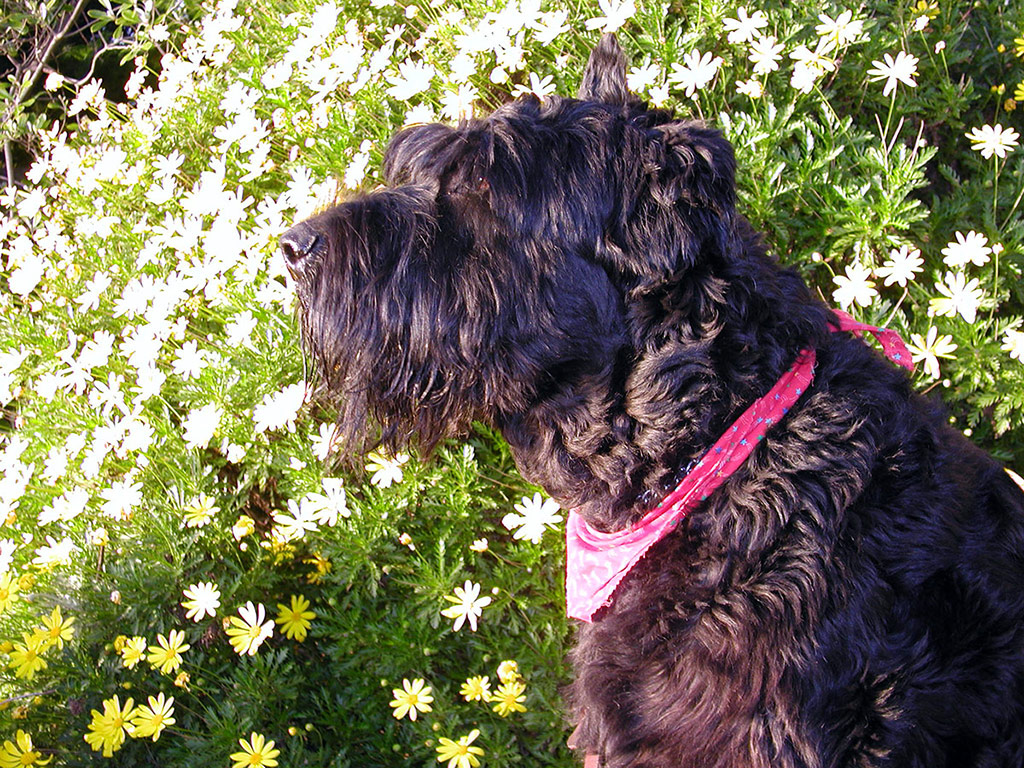
From the Characters
“Instead of bleaching my hair up there like a Venetian courtesan of centuries ago, I sip my tea and gaze out at the city—all the bell towers and alleyways, the palazzos and canals.” Her tone became oddly reverent. “I’m like a possessive lover, I guess. Every day I scrutinize Venice for changes, and it never fails to surprise me. A boat’s wake, the cry of a seabird, the way the sun’s rays strike a window, a flag on a passing ship.” Agatha’s voice fluttered like the wings of a hummingbird. “I love all of it.”
—Agatha Filbert
“Very well, I will perform the induction. But I must tell you first some things. This is not science. We are a pair of archaeologists digging through layers of memory, finding only dirt-covered potsherds, puzzle pieces, hypothesizing how the original looked. The truth may be most unwelcome. We may smash forever a cherished memory of yours with our clumsy instruments. The truth may not wish to be found, or we find a false memory instead. We may see just what your unconscious mind has thrown together, like gazing through a broken kaleidoscope and getting lost within it. We might not get to the place you want, Anna. But clearly, something is prompting your hunger to know.”
—Dr. Claudio Zampone
“Pablo, all of this is mythology,” Anna said, discounting the tale of the two llamas before recognizing her hypocrisy. Why should the Greek and Roman myths of Orion, Perseus, Cassiopeia, and countless others, forever framed as constellations in the “Western” night sky, be superior to the lowly Yacana? The human urge to name and categorize, to make the foreign, faraway stars more familiar—to people the heavens—must be a common way to feel less alone in the infinite universe.
—Anna Lucia Lottol
“He wanted me to help him cut off the head so he could mount it on his wall back in Venice. Instead of being seized by wonder, he was seized by the need to exterminate. I can see the animal still, the long, white whiskers twitching, the brown-and-tan coat splattered with red, the dying light in his emerald eyes, meeting mine. Some suck the earth dry, not seeing their own future mirrored in the death of what they have destroyed. Sergio boasted about how brave he had been in pulling the trigger. I was so furious, I could have strangled him. Perhaps I should have.”
— Pablo Morales
My Next Work: When the Jaguar Ate the Moon
In 1994, thirteen-year old Marisol and her younger brother, Raul, escape from the family home in Peru two years after a coup, and flee for their lives. They enter the United States illegally and will live with an aunt who adopts them. More than a decade later, Marisol returns to Cusco, intent on discovering what happened to her parents, and reconnecting with her grandmother. A journalist, like her father, she’s assigned a story about the Amazon rainforest, but the photographer working with her goes missing there.
Marisol’s dangerous journey takes her through the cobbled streets of Incan Cusco, to the winding Sacred Valley, to the lushness of the rainforest and its dark secrets. Exploring the far corners of her country, grappling with nightmares, facing the plight of native peoples, will she be as fearless as her father in seeking the truth?
The first chapter of this unpublished novel (formerly Jaguar Moon), was a finalist in the 2018 San Francisco Writers Conference
